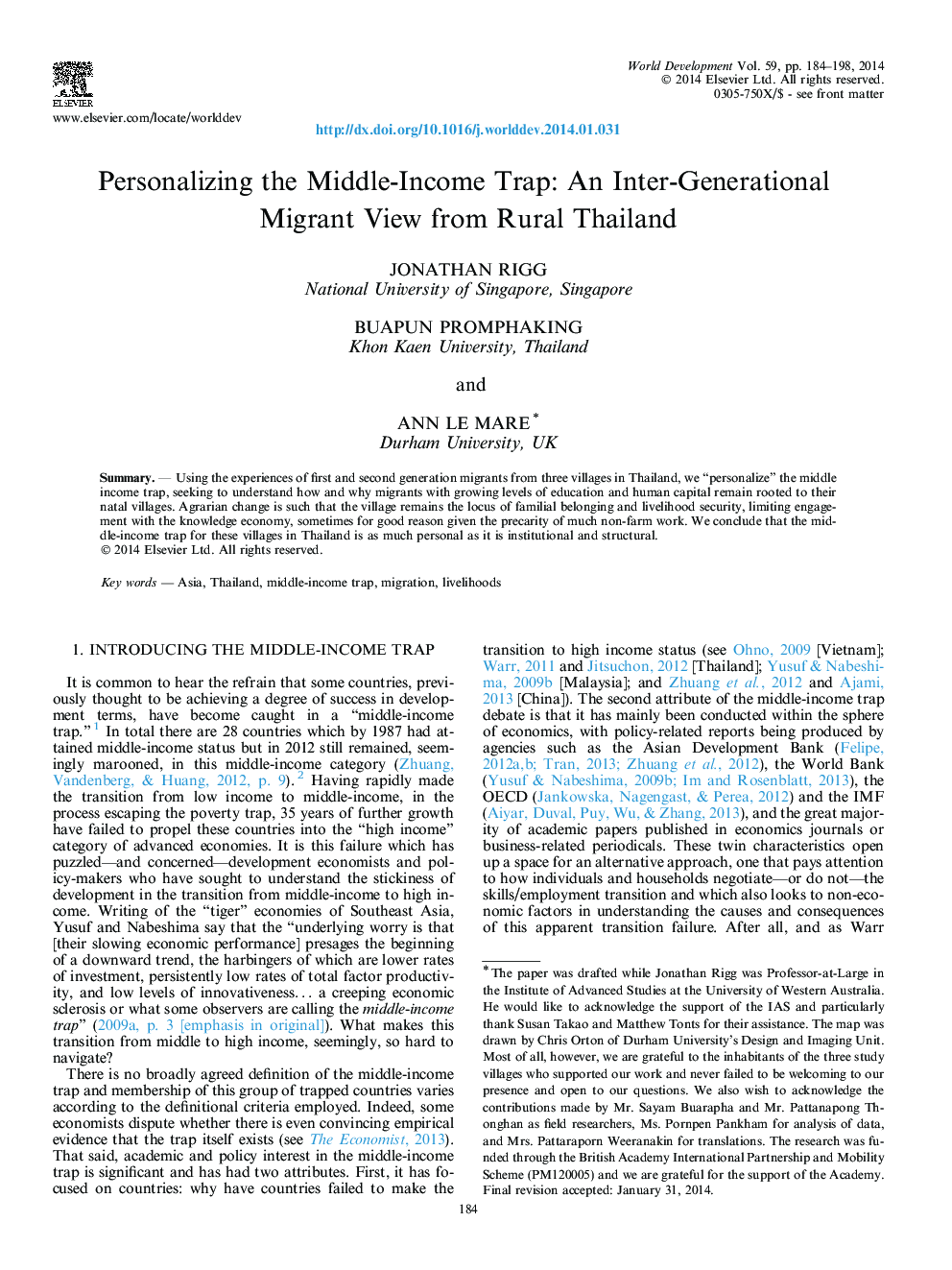| Article ID | Journal | Published Year | Pages | File Type |
|---|---|---|---|---|
| 7395188 | World Development | 2014 | 15 Pages |
Abstract
Using the experiences of first and second generation migrants from three villages in Thailand, we “personalize” the middle income trap, seeking to understand how and why migrants with growing levels of education and human capital remain rooted to their natal villages. Agrarian change is such that the village remains the locus of familial belonging and livelihood security, limiting engagement with the knowledge economy, sometimes for good reason given the precarity of much non-farm work. We conclude that the middle-income trap for these villages in Thailand is as much personal as it is institutional and structural.
Related Topics
Social Sciences and Humanities
Economics, Econometrics and Finance
Economics and Econometrics
Authors
Jonathan Rigg, Buapun Promphaking, Ann Le Mare,
